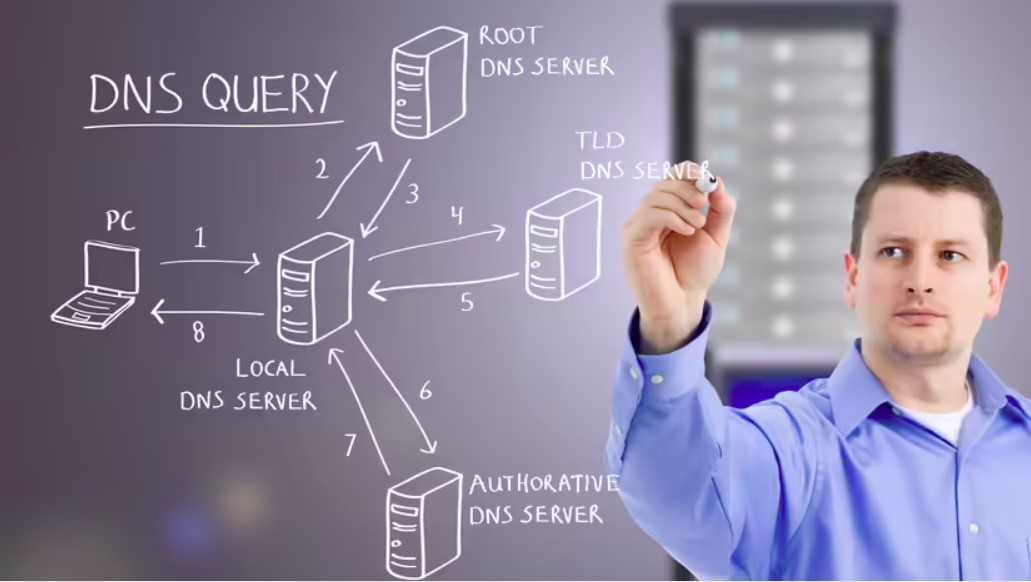What’s in a domain name? A lot! It’s one of the most crucial factors when it comes to online presence and finding your website or service quickly. But how much do you know about how it works? And why is it that there are so many domain extensions available these days? If you’re curious about this topic but don’t know where to begin, this guide to a domain name and how domains work will help you get off the right foot and understand what makes domain names unique.
A domain name is your business or personal website address.
Domain names are the web addresses you type into your browser’s address bar to reach your website. It’s essential to have one before you start creating your site. This beginner guide will help explain domain name basics, how domain names work, and how to choose one.
Selecting a domain name
Selecting a domain name is like the address of your website. It tells people where to go when they visit your site. Choosing a good domain name can be difficult, but it doesn’t have to be that way. Here are some tips on how to find one that’s perfect for you:
– Make sure it’s not already being used by someone else. – Pick something memorable, descriptive, or catchy.
Protecting your domain name with trademarks
Knowing how to trademark your domain name will help protect it from being stolen or used in a way that causes confusion among consumers. You can trademark your domain name by registering it with the U.S. Patent and Trademark Office (USPTO). When you register, you’ll be able to specify what goods and services the domain is used for, its mark or logo, the geographic location of where the business operates, contact information for the registrant, and any disclaimers.
Domain Privacy
A domain name can be public or private, but what does that mean? Public means that anyone with the URL can see who owns it. Private means that only you know who owns it.
Registering your domain name with a hosting service
You need to first register your domain name with the hosting service before you can start uploading files. Once your registration is approved, you will receive an email from the hosting service with instructions on updating your domain settings to point it to the new hosting service. The next step would be uploading your site content, such as images, videos, and other multimedia files. You might also need to upload website templates depending on what type of site you are trying to create.
GoDaddy vs. Bluehost vs. SiteGround vs. Wix
The Internet has changed our lives in many ways, and we owe it to ourselves to learn as much about technology as possible. Understanding how domains work is one of the most critical parts of this new frontier.
Domains are your way of telling people where they can find your website. The domain you choose will also impact what type of website you set up.
If you are ready to learn more, here are some things you should know about domains
Free subdomains with WordPress blogs
A domain name is an address for your website. You can purchase one from an external provider or use WordPress to create one. When you get a domain name through WordPress, it will be free. If you decide to go with an outside provider, many options come with various pricing plans.
Hosted vs. self-hosted domains
There are two types of domains, hosted and self-hosted. Hosted domains can be found on domain registrars like GoDaddy or Hover. These domains are more expensive because the hosting company provides web design, hosting, and other features for you. Self-hosted domains require you to host your website with an external hosting service such as BlueHost or HostGator.
Conclusion:
This guide has explained the basics of what domains are, how to purchase a domain name for your website, and what you need to do to maintain your environment.
Domains are an essential part of the Internet that allows people worldwide to connect with each other.
In conclusion, it is important that you have your own domain name because it will help you promote yourself better than using someone else’s domain.
FAQ’s
What are the 3 types of DNS?
There are three main kinds of DNS Servers — primary servers, secondary servers, and caching servers.
What is the purpose of a domain?
Purpose. Domain names serve to discover Internet sources, which include computers, networks, and services, with a text-primarily based totally label. This is less difficult to memorize than the numerical addresses used withinside the Internet protocols. An area call can also additionally constitute whole collections of such sources or man or woman instances.
What is a Domain Name, and How Do Domains Work
A community area is an administrative grouping of a couple of non-public pc networks or neighborhood hosts in an identical infrastructure. Domains may be recognized by the usage of a website called; domain names that want to be on hand from the general public Internet may be assigned a globally particular call in the Domain Name System (DNS). You interact by being there and playing with the oceandistinguishItwould be best if you undoubtedly contended
